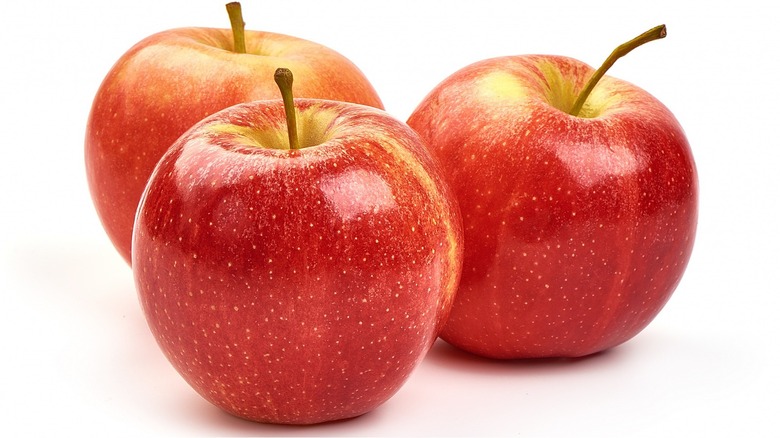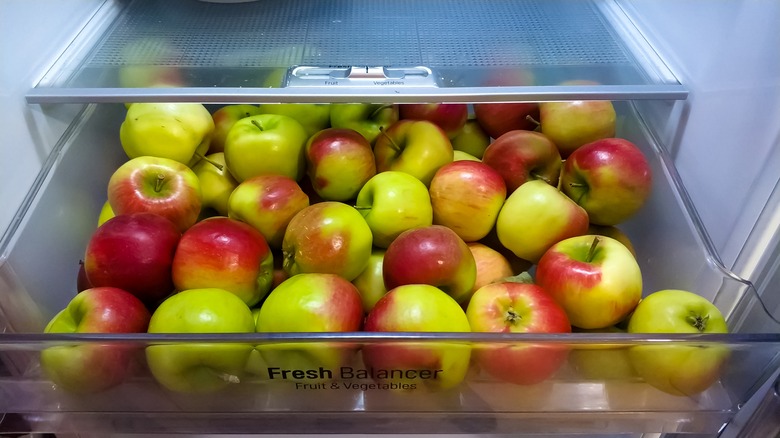Here's How To Store Apples The Right Way This Season
When apple picking season winds down towards the end of October (per Prevention), it's time to take all that fresh produce you've gathered from local orchard harvests and transform it into different culinary delights. Of course, apples are perfectly delicious on their own. But if you collected a surplus of the hardy fruit, you might want to consider preparing apples in other ways, including making simple, sweet treats, such as a seasonally-appropriate Halloween caramel apple recipe.
Apples work great for baking, too, and apple pies are a perfect dessert to complement any holiday meal. There are a dizzying amount of apple varieties (the U.S. alone grows more than 100), but if you need some guidance, we can steer you toward the best type of apple for baking. Another easy use for apples is whipping up some delectable homemade applesauce.
Even with all these great ideas, though, you may still have accumulated more apples than you can use in a relatively short amount of time. Proper storage of apples is key to maintaining their freshness and crispness — so what's the best way to keep them?
Store your apples in the fridge
Apeel food scientist Amy Keech recommends storing apples in the refrigerator to help keep them at their optimal flavor and texture. "Your refrigerator's crisper drawer is a great storage option for apples and other produce, since it maintains a more regulated environment that's not too cold and also has higher humidity, which fresh produce tends to like," Keech says. Fresh apples can last up to six weeks or more in the fridge.
For people who live in colder climates, storing apples in a garage or cellar is another viable option, Keech suggests. With this approach, you have to monitor the weather to make sure it doesn't get too cold, per Woman's World. According to Gardener's Supply Company, the ideal storage temperature for apples is "30 to 35 degrees F with 90 to 95% relative humidity."
If individuals decide to leave their apples out on the counter or in a basket, Keech advises not exposing them to direct sunlight or heat sources. Additionally, apples produce a naturally-occurring gas called ethylene that can quicken the ripening process. Therefore it is also important to separate apples from the rest of your fruits and vegetables during storage and avoid placing them in the same crisper drawer as other produce, which they can prematurely ripen. Wrapping apples individually in plastic bags or paper towels in the fridge can help prevent a spoiled apple from ruining the rest as well (per Insider).

